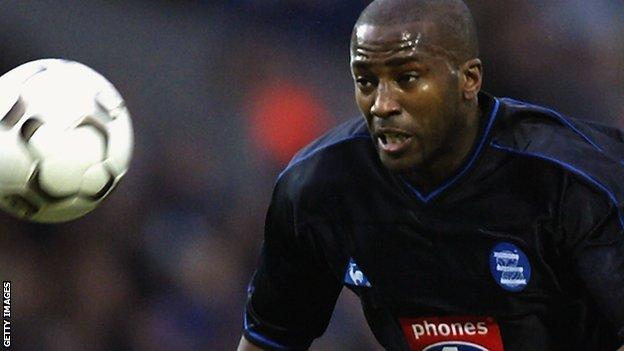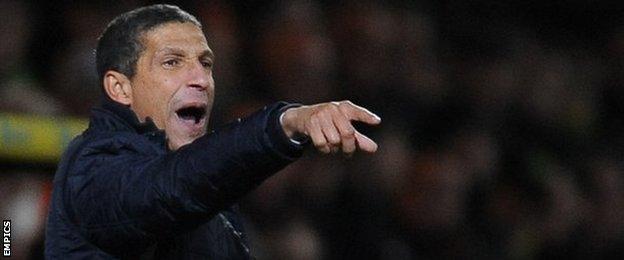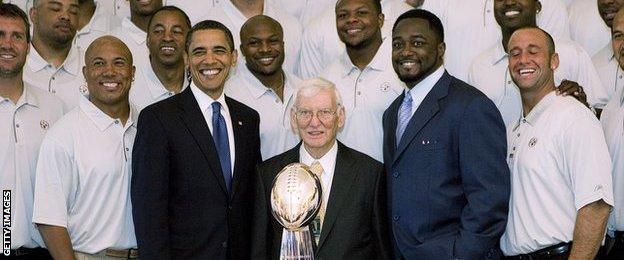Black and ethnic minority coaches not getting top jobs, study shows

Last updated on .From the section Football

There are only 19 black and ethnic minority (BME) coaches in the 552 'top' coaching positions at professional English clubs, a report has found.
BME coaches take up 3.4% of those positions despite at least 25% of players coming from BME backgrounds.
Findings of the study, carried out by the Sports Person's Think Tank, will be revealed at Westminster on Monday but have already been seen by BBC Sport.
Sports Minister Helen Grant said the findings are "appalling and worrying".
She added: "It's going to take a concerted effort by everyone in football to get the sea change that we need."
The think tank will announce its recommendations at Monday's meeting with MPs and the sports minister in London.
The report was carried out by Dr Stephen Bradbury at Loughborough University, and examined what it took to be the top six coaching and management positions at all 92 professional football clubs in the English leagues.
The study, funded by Football Against Racism in Europe (Fare), says that "institutional discrimination" is present within the English leagues.

Former Reading, Blackburn and Wigan striker Jason Roberts, 36, is a founding member of the think tank.
"It appears that football has lost successive generations of potential coaches and managers simply because they are black or from other ethnic minority backgrounds," he wrote in the report.
"An urgent, honest and thorough debate is required before English football can heal itself and redress the balance."
The study acknowledges that a very small number of BME coaches are also working in supporting roles, often on a part-time basis, while the research also suggests there is an over-reliance within professional clubs of "network-based" methods of recruitment.
The Football League, under the guidance of chairman Greg Clarke, is conducting a review into how it can increase the numbers of BME coaches and managers among its member clubs.
Clarke has been criticised by the Professional Footballers' Association for his failure to keep a promise to hold a vote at the Football League's 2013 annual general meeting on a proposal to conduct a trial of a version of the NFL's Rooney Rule.
| What is the Rooney Rule? |
|---|
| Introduced into American football in 2002, the Rooney Rule mandates that teams interview at least one BME candidate when a head coach or general manager position becomes available. |
| You can download a podcast of Richard Conway's look at the history and impact of the Rooney Rule, and whether it could work in UK football, here. |
The Football Association has also set itself a new target to boost diversity within all levels of the game, while the Premier League recently said it wanted to see "more and better" coaches "who can progress to the highest levels of the game on merit and regardless of race, ethnicity, gender or background".
The study claims that some BME coaches have experienced intentional and unintentional racism "within the high-level coach education environment".
"This has included explicit racist name-calling and more subtle and nuanced forms of racial 'banter', and a lack of recognition or willingness to address racisms of this kind by FA coach educators," says the study.
BBC Sport understands the FA is not aware of any complaints of discrimination and has previously stated it would encourage anyone with a complaint to come forward and report them.
FA Learning and full-time coach educators are already required to undergo equality and diversity training, as part of the FA's inclusion plan.
FA board member Heather Rabbatts said the governing body welcomed the report, which "adds further evidence that bodies across the game need to work together to challenge discrimination".
She added the FA was "committed to the long-term programme of change" and would be working with Fare, the Sports People's Think Tank, the sports minister and other paries to "maintain the momentum of change and build on the work already underway across the game".
The report also contends that a lack of BME role models, together with "conscious and unconscious racial bias" and stereotyping, play a part in the low figures.

The report also examines why low numbers of BME coaches are completing their core qualifications.
Michael Johnson, a 41-year-old former Birmingham City player, thinks many BME professionals are put off trying to gain coaching qualifications by the belief they will not get job opportunities once they gain them.
Johnson, who retired in 2009, has a full set of coaching badges, including the highest award of the Uefa Pro Licence, a prerequisite for anyone wanting to manage in the Premier League.
He has received just three invites to attend an interview in the past three years for coaching and manager jobs.
"I don't want anyone to do me a favour," he says.
"I've gone out and done it the hard way. I've paid my way through the qualifications. All I want is that opportunity, just like any other man from any other walk of life.
"All we want is to get in the room. Nobody is saying you're going to get the job. All we're saying is have a look at these guys and see if they might change your perception of what you might think they are."